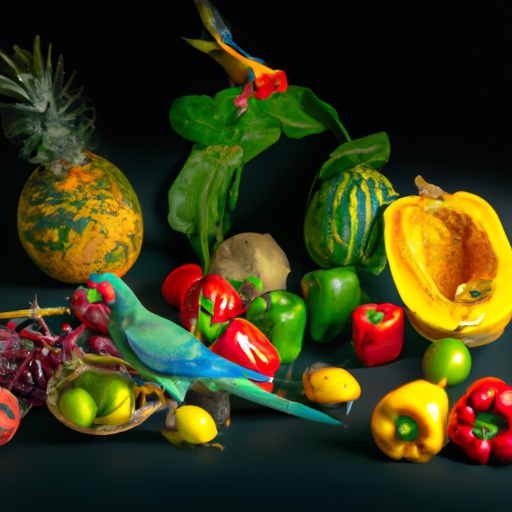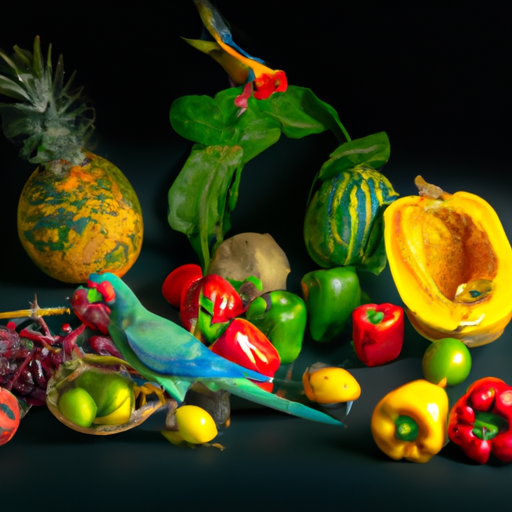
When it comes to keeping our feathered friends happy and healthy, diet plays an essential role. Parrots, known for their vibrant plumage and lively personalities, thrive on a varied diet that includes fruits and vegetables. However, not all produce is safe for them. Let’s explore the wonderful world of safe fruits and vegetables for parrots, ensuring they get the nutrition they need without any risks.
Fruits are a delightful treat for parrots, offering both nutrition and enrichment. Among the safest and most nutritious options are apples, berries, and melons. Apples, with their crunchy texture, are a favorite, but be sure to remove the seeds, which contain cyanide compounds. Berries, such as strawberries, blueberries, and raspberries, are small powerhouses of antioxidants and vitamins. Watermelon and cantaloupe, on the other hand, provide hydration along with their refreshing sweetness.
Vegetables are equally important in a parrot’s diet. Leafy greens like spinach, kale, and Swiss chard are packed with vitamins A, C, and K. Carrots, sweet potatoes, and bell peppers add a splash of color and a host of nutrients to their meals. Cruciferous vegetables like broccoli and cauliflower, rich in fiber and vitamins, also make great choices, though they should be offered in moderation to avoid digestive issues.
While many fruits and vegetables are safe, it’s crucial to avoid certain toxic items. Avocado is a well-known hazard due to persin, a substance harmful to parrots. Rhubarb and onion are also on the no-fly list, containing compounds that can cause serious health problems. Citrus fruits, though not toxic, should be given sparingly due to their high acidity, which can upset a parrot’s stomach.
Introducing new foods to your parrot can be a fun and rewarding experience. Start with small portions and observe how they react. Parrots are known for their cautious nature, so patience is key. Over time, you’ll discover their favorites, whether it’s the crunch of a fresh apple or the vibrant taste of a berry medley.
In addition to providing a balanced diet, it’s important to consider the freshness and cleanliness of the produce. Always wash fruits and vegetables thoroughly to remove any pesticides or dirt. Organic options are preferable to minimize exposure to harmful chemicals. Cut produce into manageable pieces to prevent choking hazards and to encourage your parrot to engage with their food.
Creating a varied diet for your parrot not only supports their physical health but also enriches their mental well-being. The colors, textures, and flavors of different fruits and vegetables provide sensory stimulation, keeping your parrot active and curious. So, next time you prepare a meal for your feathered companion, remember the diverse and delightful options available. With the right choices, you can ensure your parrot enjoys a healthy, happy life filled with the best nature has to offer.


6 Comments
Great post! I’ve always worried about what fruits and veggies are okay for my parrot. Thanks for the thorough guide! 🍎🥦
Loved reading this guide! It’s super helpful, especially for new parrot parents like myself. I had no idea about some of these fruits! 🥒🍐
Thanks for sharing this! Quick question: are there any specific fruits that help with a parrot’s feather health? Would love to know more! 🦜
Excellent guide! I’ve been introducing new veggies to my parrot’s diet slowly, and this list helps a lot. Keep up the great work! 🌽🍒
This is fantastic, really clears up the confusion! Do you have any tips on how to get picky eaters to try new veggies? Thanks! 🥕🍇
So informative! I’ve bookmarked this for future reference. It’s always great to have a safe food list handy for my feathered friend. 📚🍌